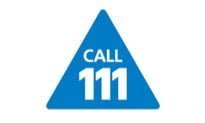Slippage in 111 go-live covered
- 4 March 2013

Contingency plans are in place to continue to provide the 0845 health advice line for up to half of England beyond the April go-live date for NHS 111.
The new urgent care telephone number is due to be live across the country by April, however a number of areas are unlikely to meet the deadline.
New information released to EHI from the Department of Health also reveals what organisations will be providing the service nationwide.
There are 44 NHS 111 areas and of these, 12 have awarded contracts to Harmoni, 11 to NHS Direct and 11 to ambulance services.
Of the remaining 12, two of the regions are yet to award contracts – Leicestershire and Rutland, and Devon – while the others are using a range of out-of-hours providers.
NHS Direct runs the 0845 phone service from 30 sites nationwide. This will reduce to 12 once NHS 111 is fully implemented, likely to be around June.
NHS Direct managing director Trevor Smith said the organisation had a contingency contract with the DH to continue running the 0845 number in areas that fail to launch NHS 111 by April. The contract can cover up to half the country until June this year.
Smith hoped that this level of contingency cover would not be needed, but added that the DH had already agreed slippage in the timetable for some sites.
Three of NHS Direct’s contracts are now live. Sutton and Merton is fully launched, while Buckinghamshire and Somerset are both in soft-launch phase. This is when OOH calls get directed to the NHS 111 call centre, but the 0845 number still operates.
NHS Direct chief information officer Alan Bentall said there would not be a national campaign promoting the NHS 111 go-live in April.
Instead, publicity would be handled locally as each site goes live with a national campaign expected later in the year.
Bentall said there were a number of enhanced functionalities associated with NHS 111 that were not available with the 0845 service.
The most important being the use of ITK-compliant referral messages to communicate between NHS 111 providers and treatment services.
“This means every service provider will be able to communicate with every face-to-face service that’s a referral point right across the country and includes the ability to directly dispatch an ambulance and refer to an OOH provider,” he explained.
Messages include a standard set of information such as patient demographics pulled from the Personal Demographics Service and the outcome reached using NHS Pathways.
These messages can already be accepted by OOH providers, while GP systems and A&E departments can also become compliant.
Bentall said NHS Direct works with commissioners to develop lists of local service providers and decide whether functionality like direct appointment-booking should be enabled.
This directory of services would be constantly updated as to whether providers could receive referral messages, he explained.
“We’re not going to get there on day one, but that enhanced capability is going to be able to build up over time,” Bentall said.
No NHS Direct sites had requirements for 111 staff to be able to access patient Summary Care Records, but that functionality was also available.
Bentall believed the potential for interoperability using 111 was huge and that CCG “innovators” would adopt new technologies that would be disseminated to other parts of the country.
“Switching off 0845 which is a major national service and mobilising 44 new services across the country is a major logistical exercise,” he said.
“That’s taxing for large new organisations and local commissioners who are also going through significant change so it’s inevitable you are going to have some teething problems.”




